detail profile laurence hanray

Laurence Hanray
Lawrence Hanray
atau dikenal sebagai
Riwayat Hidup
Laurence Hanray (16 May 1874 – 28 November 1947), sometimes credited as Lawrence Hanray, was a British film and theatre actor born in London, England.
He is also credited as the author of several plays and music hall songs.
Laurence Hanray was born Lawrence Henry Jacobs in St John's Wood on 16 May 1874, the son of Angelo Jacobs (c.
1851-1910), a glass manufacturer, and Leah (née Nathan; 1850/1851 - 1946).
His father changed his name to Angelo Jacobs Hanray, and with it the family name, after becoming bankrupt in 1897, although Laurence had been using the name Hanray professionally from at least 1892, when he appeared as a member of the Hermann Vezin Theatre Company in supporting roles in Hamlet and Macbeth at Her Majesties Theatre, Dundee.
Australian newspapers show he was in Australia and New Zealand from around 1901-04, appearing as Carraway Bones the undertaker in the farce Turned Up at the Theatre Royal, Perth, in May 1901, and subsequently at most of the main cities until June 1904.
Travel records show him departing Sydney for Auckland in August 1901, and sailing from Sydney for London on 7 October 1904.
He then resumed touring in Britain.
In the 1911 census, Laurence Hanray (36), actor, is listed as residing at the Woolton Hall Hydropathic Hotel, Much Woolton, Lancashire, England.
Hanray married Dorothy Mary Chambers Farnsworth (1884-1918) in the Birkenhead district during the first quarter of 1914.
She petitioned for divorce in 1917, but then died suddenly in London on 16 August 1918.
Hanray married Lois Grace Heatherley (1892-1966) in Paddington during the same quarter his first wife died.
Lois was also an actress and performed with Laurence at the Booth Theatre, Broadway, in 1921.
They were also together in The Faithful Heart, she as Ginger and Laurence as Major Lestrade, at the Comedy Theatre, Haymarket.
Travel records then show the couple arriving in New York in September 1922.
He appeared in John Galsworthy's play Loyalties at the Gaeity Theatre on Broadway.
They arrived in Liverpool in May 1923.
The couple also played together in Escape at the Booth Theatre, Broadway in 1927, she as Miss Grace and he in multiple roles (the Fellow Convict, the Old Gentleman and the Farmer).
Laurence and Lois had a daughter, Ursula Susan Edith Hanray, on 16 November 1923.
According to travel records, the family visited America from September 1927.
Laurence also went on his own to Canada in September 1931, and also during 1939-1940.
Ursula became a child actress, playing the title role in the first televised production of Alice Through The Looking Glass in 1937, and the young Queen Victoria in a London theatre in 1940.
Hanray worked almost up to his death; The Times reported in early September 1947 that he was to appear in a play at Dunfermline Abbey Theatre.
He died at age 73 on 28 November 1947, following an operation at the Middlesex Hospital, London.
Lois Grace Hanray died aged 74 on 25 April 1966.
Info Pribadi
Peran Yang Di Mainkan Laurence Hanray
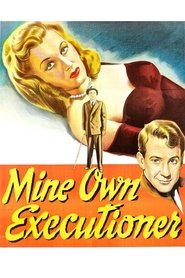 Fearing her husband could become a...
Fearing her husband could become a...Mine Own Executioner 1947
Fearing her husband could become a killer, a woman seeks a psychiatrist's help.
 During WW2 a former railway employee...
During WW2 a former railway employee...Waterloo Road 1945
During WW2 a former railway employee who had been drafted, goes AWOL to hunt down the spiv and draft dodger who is having an affair with his wife.
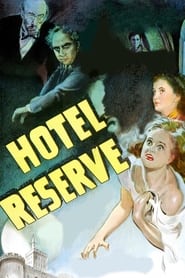 A hunt for a spy in...
A hunt for a spy in...Hotel Reserve 1944
A hunt for a spy, in a hotel in the South of France just before World War Two.
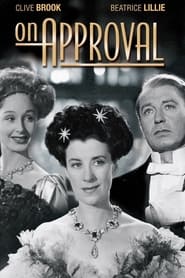 Two wealthy Victorian widows are courted...
Two wealthy Victorian widows are courted...On Approval 1944
Two wealthy Victorian widows are courted tentatively by two impoverished British aristocrats. When one of the dowagers suggests that her beau go away with her for a month to see if they are compatible, the fireworks begin.
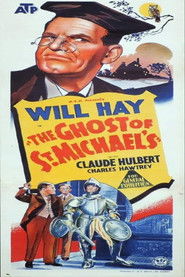 Will Hay back in his role...
Will Hay back in his role...The Ghost of St. Michael's 1941
Will Hay, back in his role as a hapless teacher, is hired by a grim school in remotest Scotland. The school soon starts to be haunted by a legendary ghost, whose spectral bagpipes signal the death of one of the staff. Hay, assisted by Claude Hulbert and Charles Hawtrey, has to unravel the mystery before he becomes the next victim.
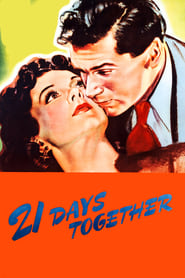 After Larry Darrent accidentally kills his...
After Larry Darrent accidentally kills his...21 Days Together 1940
After Larry Darrent accidentally kills his lover's blackmailing husband, someone else is arrested for the crime. When he is found guilty, Larry and Wanda have just three weeks together before he must give himself up or let an innocent man go to the gallows.
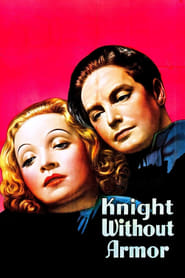 British agent working in Russia is...
British agent working in Russia is...Knight Without Armour 1937
British agent working in Russia is forced to remain longer than planned once the revolution begins. After being released from prison in Siberia he poses as a Russian Commissar. Because of his position among the revolutionaries, he is able to rescue a Russian countess from the Bolsheviks.
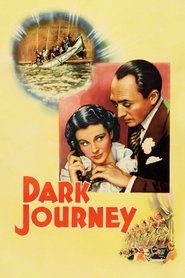 Madeline Goddard is a British double...
Madeline Goddard is a British double...Dark Journey 1937
Madeline Goddard, is a British double agent who meets and falls in love with a German spy Baron Karl Von Marwitz during World War I. This tale of espionage blends high adventure and romance making perfect order from wartime chaos and growing in faith from despair.
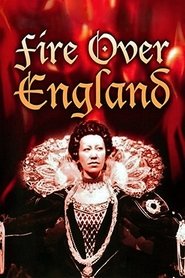 The film is a historical drama...
The film is a historical drama...Fire Over England 1937
The film is a historical drama set during the reign of Elizabeth I (Flora Robson), focusing on the English defeat of the Spanish Armada, whence the title. In 1588, relations between Spain and England are at the breaking point. With the support of Queen Elizabeth I, British sea raiders such as Sir Francis Drake regularly capture Spanish merchantmen bringing gold from the New World.
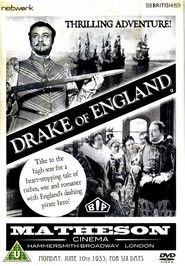 Imposing Canadianborn stage actor and playwright...
Imposing Canadianborn stage actor and playwright...Drake of England 1935
Imposing Canadian-born stage actor and playwright Matherson Lang was one of the twentieth century's great Shakespearean players, and became Britain's foremost screen actor during the 1920s; in Drake of England, one of his final films, he takes the title role in Arthur Woods' portrayal of the life and times of the flamboyant piratical adventurer who founded Britain's sea fortunes. From clandestine romance at the court of Elizabeth I to conquests in the newly discovered lands of South America and spectacular victory over the Armada, Drake of England offers a panoramic overview of Drake's life.
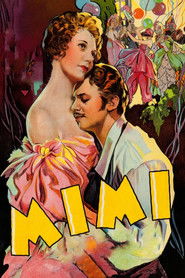 A struggling playwright in 1850s Paris...
A struggling playwright in 1850s Paris...Mimi 1935
A struggling playwright in 1850s Paris and his mate finds love that furnishes him with the inspiration he has long sought.
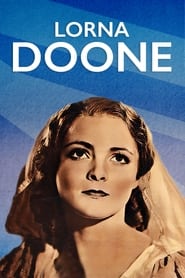 High drama set in the English...
High drama set in the English...Lorna Doone 1934
High drama, set in the English moorland of the 1600s. John Ridd wants revenge on the criminal Doone family, but falls in love with the daughter of the family, Lorna.
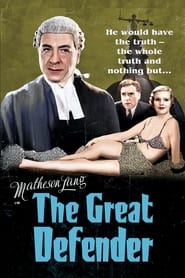 Sir Douglas Rolls is a highly...
Sir Douglas Rolls is a highly...The Great Defender 1934
Sir Douglas Rolls is a highly respected defence lawyer of many years experience. Now in rapidly failing health, he is advised to retreat from the courtroom and pursue more pleasurable activities. But it is just at this point in his life that his great lost love a woman his own strong sense of duty led him to give up twenty years ago, and whom he still loves deeply walks into his chambers to ask that he defend her adulterous husband, now to stand trial for murder. Reluctantly agreeing to take on the case, Sir Douglas soon finds there is more to the story than meets the eye.
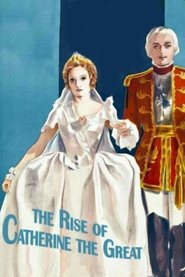 The woman who will become Catherine...
The woman who will become Catherine...The Rise of Catherine the Great 1934
The woman who will become Catherine the Great marries into the Russian royal family when she weds Grand Duke Peter, the nephew of Empress Elizabeth. Although the couple has moments of contentment, Peter's cruel and erratic behavior causes a rift between him and Catherine. Mere months after Peter succeeds his aunt as the ruler of Russia, a revolt is brewing, and Catherine is poised to ascend to the throne as the country's new empress.
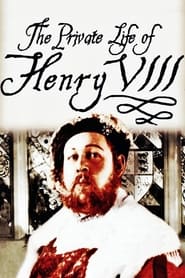 Renowned for his excess King Henry...
Renowned for his excess King Henry...The Private Life of Henry VIII 1933
Renowned for his excess, King Henry VIII goes through a series of wives during his rule. With Anne Boleyn, his second wife, executed on charges of treason, King Henry weds maid Jane Seymour, but that marriage also ends in tragedy. Not one to be single for long, the king picks German-born Anne of Cleves as his bride, but their union lasts only months before an annulment is granted, and King Henry continues his string of spouses.
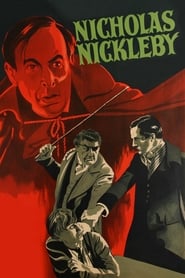 A fatherless boy tries to make...
A fatherless boy tries to make...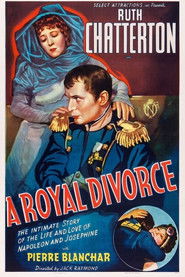 The love affair between the French...
The love affair between the French...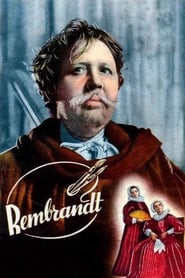 A character study depicting the life...
A character study depicting the life...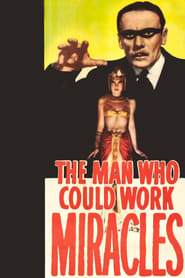 An ordinary man while vigorously asserting...
An ordinary man while vigorously asserting...